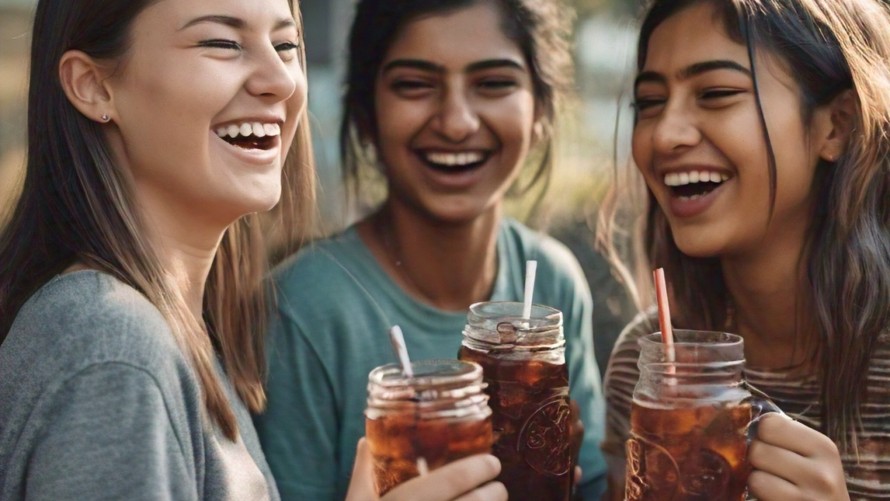A new study from Flinders University reveals that Australian parents are feeling conflicted and concerned about giving non-alcoholic beer, wine and spirits to their teenagers. As alcohol-free drinks soar in popularity and availability, many parents are unsure of the implications for underage consumption.
Non-alcoholic or “zero-alcohol” drinks contain less than 0.5% alcohol by volume but closely mimic the taste of regular alcoholic beverages. While popular among adults cutting back, they present a dilemma for parents of adolescents.
“Our research found that parents feel like they don’t have enough information to make an informed decision, and are conflicted on whether alcohol-free alternatives are suitable, healthy or possibly harmful for teenagers,” says Nathan Harrison from Flinders’ National Centre for Education and Training on Addiction (NCETA).
Parents worry the drinks’ resemblance to alcoholic versions could normalize and encourage underage drinking. As one parent stated: “It works like a gateway drug, you know, that they start on the zero-alcohol and they wanna try the real thing.”
Another voiced concern about glorifying alcohol: “If it’s the whole ‘being cool because you’re drinking alcohol’ sort of link, it’s almost in the same realm as being harmful, you know: it’s normalizing everything about alcohol.”
The realistic branding, especially by major beer companies, fueled additional unease among parents surveyed. Around half feared the non-alcoholic drinks could lead to increased alcohol use by teens.
A separate Flinders study of over 1,100 parents found those confused about teen alcohol guidelines were more likely to give their children zero-alcohol products.
“Research has shown that delaying the introduction of alcohol to children can reduce the likelihood of binge drinking and alcohol-related issues later in life,” says researcher Dr. Ashlea Bartram.
“For now, we advise a precautionary approach and recommend that parents do not provide zero-alcohol drinks to their adolescents. We know that they are not intended for consumption by children.”
Christine Morris from Cancer Council SA notes alcohol companies can market the non-alcoholic versions differently than regular drinks. “It’s important to make sure that children and young people are not exposed to advertising…that could put them at risk of harm.”
The research underscores parents’ desire to minimize alcohol risks but struggles with navigating the new non-alcoholic landscape for teens. Clearer guidelines may be needed as these beverages continue gaining popularity.
‘Which parents provide zero-alcohol beverages to adolescents? A survey of Australian parents’ practices and intentions’ by lead author Ashlea Bartram, Nathan J. Harrison, Christina A. Norris, Susan Kim, Simone Pettigrew, Robin Room, Caroline Miller, Ian Olver, Rebecca Jenkinson, Marina Bowshall and Jacqueline A. Bowden. DOI: 10.1016/j.ypmed.2023.107840
If our reporting has informed or inspired you, please consider making a donation. Every contribution, no matter the size, empowers us to continue delivering accurate, engaging, and trustworthy science and medical news. Independent journalism requires time, effort, and resources—your support ensures we can keep uncovering the stories that matter most to you.
Join us in making knowledge accessible and impactful. Thank you for standing with us!

